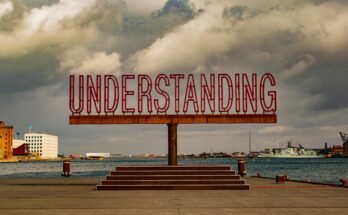Why You Need Business Liability Insurance in Utah
As a business owner in Utah, it’s crucial to understand how liability works and why liability insurance is so important. Whether you have employees, or clients visiting your office or sell products to customers, there is always a risk of personal harm or property getting damaged through no direct fault of your own. This is where liability insurance comes in.
Liability insurance protects your business financially in the event someone sues you, alleging your negligence or the negligence of your employees caused their injury or property damage. Without adequate liability coverage, any settlements or court judgments would likely come directly out of your pocket. And for most businesses, that could potentially cost far more than the annual premiums for a liability policy.
Liability risks are also everywhere. Slip-and-fall accidents, product defects, faulty workmanship – these are just some examples of how your business could face a liability claim down the road, even if you follow all appropriate safety protocols. No one plans to get sued, but it does happen. Having the right protection in place can help you avoid financial ruin should such an unfortunate incident occur.
Additionally, many contracts, leases, and local laws in Utah require businesses to carry a minimum amount of liability coverage. Without meeting these requirements, you may not be able to operate legally. So overall, liability insurance offers indispensable protection for any company’s continued viability and success. The costs are relatively low compared to the high costs of an uncovered legal claim.
Determining the Proper Amount & Types of Coverage
When shopping for business liability insurance in Utah, one of the most important decisions is how much coverage to purchase. Experts typically recommend a starting point of $1 million per occurrence and a $2 million accumulated threshold. This provides a solid buffer for standard liability claims.
However, some high-risk industries or businesses with significant assets may require higher limits. Consult with your insurance representative to evaluate your specific vulnerabilities and determine the appropriate coverage amounts. Going under-insured leaves your business vulnerable.
In addition to general liability protection, consider these optional types of liability coverage as add-ons:
Products Liability Insurance – For manufacturers and retailers of physical goods. Covers injury or property damage claims alleging a product defect.
Professional Liability Insurance – For errors and omissions exposed professions like accountants, lawyers, and contractors. Covers negligent acts, errors, or omissions.
Commercial Auto Insurance – If your employees use vehicles for business. Covers vehicle-related injury and property damage claims.
Umbrella/Excess Liability Insurance – Provides additional liability protection above your primary limits, usually $1 million or more. Provides a crucial extra layer of security.
Working with a knowledgeable agent, analyze all your exposures and craft a policy that comprehensively addresses your specific risks. Multiple types of tailored coverage give you robust protection.
Common Claims & Situations Covered
Now that we covered why liability insurance matters and how to determine the right policy structure, let’s explore some examples of the types of claims and incidents that standard business liability insurance would respond to:
- A customer misses a step and falls at your store location, alleging unsafe floor conditions led to their injury.
- An employee is in a car accident during work hours and other drivers sustain injuries, looking to your company for damages.
- Your service technician negligently damages a client’s home during a repair job. The client wants you to cover restoration costs.
- A product sold on your website contains a defect and causes harm – resulting in multiple consumer injury lawsuits.
- During a construction project, your team leaves behind debris that another company trips over the next day, spraining their ankle and suing your business.
- A customer accuses your accounting practice of providing flawed tax advice, causing them to get audited and pay thousands in penalties and interest.
As long as the incident was accidental and arguably your fault due to negligence rather than intentional actions, business liability insurance exists to cover these types of third-party claims for bodily injury and property damage. It provides essential protection against everyday business risks.
Understanding Policy Exclusions
Of course, no insurance policy offers limitless coverage. It’s important for Utah business owners to understand the standard exclusions written into most liability policies:
- Intentional or criminal acts are excluded from coverage. If you purposely cause harm, the insurer won’t defend or pay out any resulting claims.
- Punitive damages are commonly not covered due to their punitive nature, which is aimed at punishment rather than compensation.
- “Absolute” pollution liability arising from long-term environmental damage may be excluded versus sudden accidental releases.
- Auto coverage usually excludes injuries to your own employees to avoid doubling up on worker’s comp benefits.
- Professional service errors resulting from your intentional mistakes could fall outside coverage scope if due to gross negligence.
Review all exclusion details with your agent and consider additional policies if necessary to plug any coverage gaps based on your business activities. An appropriate liability umbrella policy can also help address certain common exclusions. Overall transparency about what’s excluded prevents surprises down the road.
Maintaining Coverage & Assessing Risk Control Methods
Once insured, business owners must keep their liability policies active and in good standing:
- Pay premiums on time – Insurers will deny claims or even cancel policies due to late or non-payments.
- Report any changes promptly – Modifications to your business operations, employee count, or service offerings need insurer approval.
- Update value schedules – Construction values, inventory stock pricing – these require regular updates.
- Document all incidents ASAP – Preserve details for potential claims, even if minor. Report immediately to the insurer for coverage assessment.
Additionally, taking proactive risk control steps helps keep your premiums low and prevent liability exposure in the first place:
- Conduct regular equipment safety checks, inspections, and maintenance
- Provide comprehensive employee training on safety procedures
- Obtain proper licensing and certifications for all services
- Secure customer waivers and release forms where applicable
- Routinely inspect premises for trip hazards, faulty equipment or other defects
Being proactive about liability avoids claims in the first place and reassures your insurer you’ve taken prudent measures to minimize risks covered under the policy. This supportive relationship ensures continued affordable coverage.
Choosing a Qualified Utah Insurance Agent
When the time comes to review your options and secure a business liability insurance policy, work with a knowledgeable local Utah insurance agency. Quality agents understand Utah’s insurance regulations in-depth, plus have relationships with top-rated insurers providing competitive rates.
Ask about:
- Insurers with strong Utah business insurance experience and financial strength ratings
- Agency credentials – are they licensed and certified by the state?
- Sample coverage proposals tailored specifically to your industry and operations
- Help customizing policies to adequately address all exposures
- Ongoing services like annual reviews, policy consultations and claims assistance
Opted for an agency accessible and responsive to your needs. Broad coverage options, competitive pricing, and excellent ongoing customer care help you maintain the right protection in the most cost-effective way. A trusted partner makes navigating insurance simpler and keeps your business compliant and protected for the long run.
Frequently Asked Questions
Here are answers to some frequently asked questions regarding business liability insurance in Utah:
Does liability insurance cover lawsuits against my LLC or corporation?
Yes, liability policies insure the legal entity itself, so claims naming your business as a defendant would be addressed under the coverage just the same as those against you individually.
Am I required by law to carry liability insurance in Utah?
It depends on your industry and business activities. Certain licensed professions typically require minimum liability limits by state law, and you may need it per leases, contracts, or to meet local business operating rules. Consult relevant regulations.
What happens if I’m underinsured and a large claim exceeds my limits?
The policy would pay out up to the liability limits you purchased. You’d be responsible for any damages award or settlement costs above that, which could seriously financially impact your business if insufficient coverage was in place. It’s best to carry adequate limits.
Can I get umbrella insurance over my liability policy limits?
Yes, purchasing an excess/umbrella liability policy is a smart way to supplement your standard coverage and provide layers of protection well above the primary limits, for more robust risk transfer against high dollar claims.
Is there a way to lower my liability insurance premiums?
Implementing proven risk control methods, maintaining a strong safety record, taking higher liability deductibles, and bundling policies with your provider can potentially help reduce rates over time. Work proactively with your agent.
Final Thoughts
In today’s litigation-minded world, no business can afford to operate without liability insurance. The potential costs of an uninsured lawsuit far outweigh policy premiums. As a Utah entrepreneur, make sure to obtain the recommended types and appropriate amounts of coverage essential for your industry and operations. Partner with an experienced local insurance agency that understands your unique risks and can customize ongoing protection tailored to your needs. With the right liability insurance safeguards in place, you can feel secure focusing your energy on business growth while still adequately protected against unintended consequences of unforeseen accidents and allegations affecting your operations.



